In this article:
Skin lightening is a cosmetic technique used to obtain an even skin tone. It works by reducing or controlling the amount of melanin in your skin. An uneven skin tone may be a consequence of hyperpigmentation, which is the appearance of dark patches on your skin.
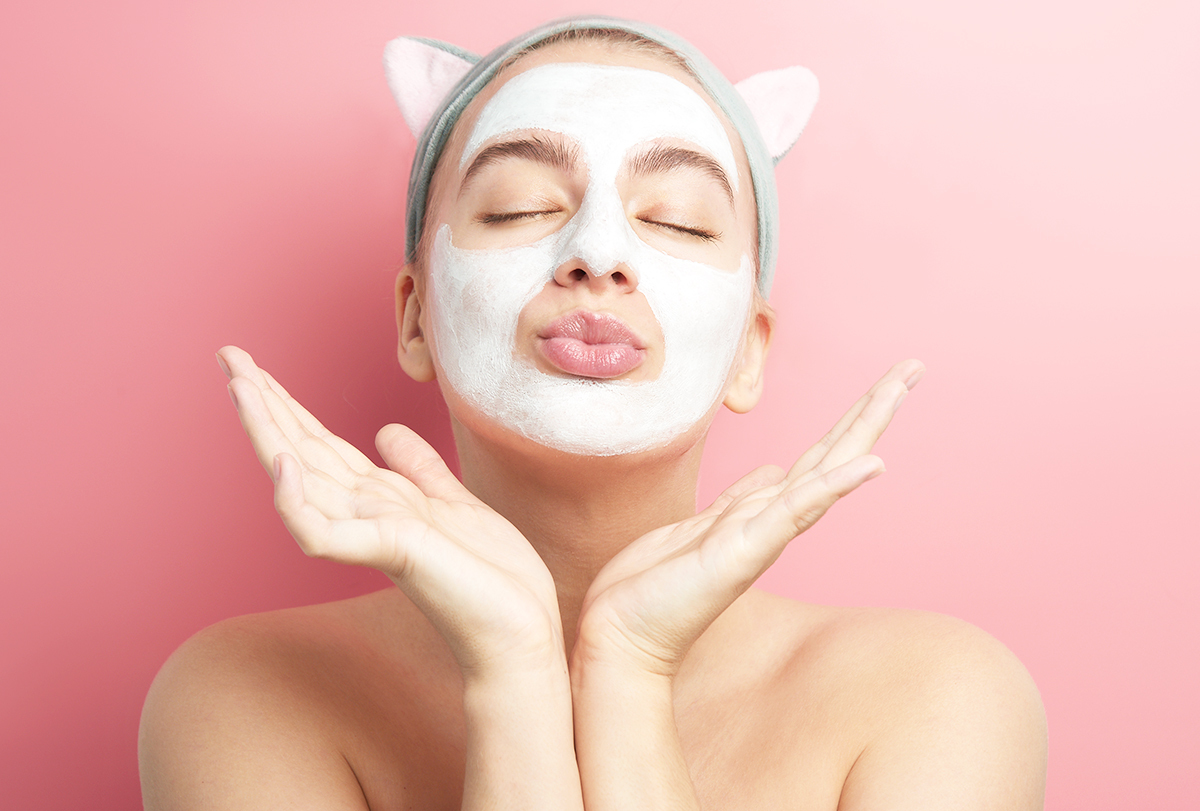
The dark areas of skin may be caused by age spots, freckles, or melasma. People use skin-lightening techniques to fade out these imperfections.
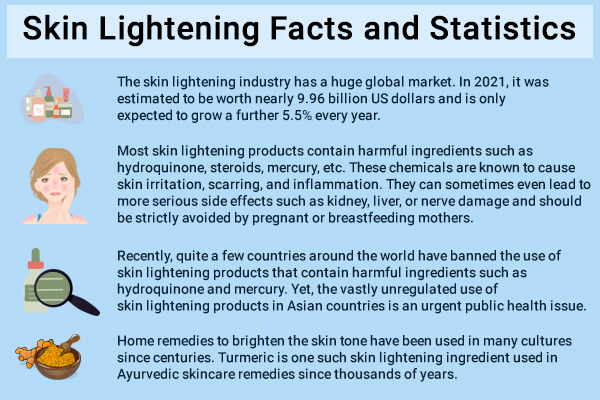
How to Lighten Your Skin With Natural Remedies
Here are 9 home remedies that you can try at home to lighten your skin.
1. Yogurt and gram flour
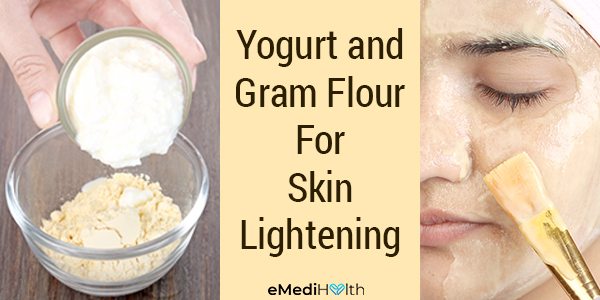
Using yogurt as a home remedy for skin rejuvenation is a common practice. Both external application and the consumption of yogurt can help in achieving soft and radiant skin. (1)
Being a milk product, yogurt is full of nutrients that are beneficial to the skin. The lactic acid in yogurt acts as a natural bleaching agent. Gram flour can help improve the quality of your skin by providing nutrition. It can also be used to obtain a lighter complexion.
A mixture of gram flour and yogurt can help moisturize your skin and remove excess oil.
- Mix yogurt and gram flour and apply the mixture to your skin.
- Let it dry for 30 minutes.
- Massage your skin and wash it off with water.
- To get rid of a suntan, use this remedy daily for 2–3 weeks.
Caution: Do not apply yogurt if you are allergic to dairy products. You can do a patch test to check for any sensitivity reaction.
2. Papaya
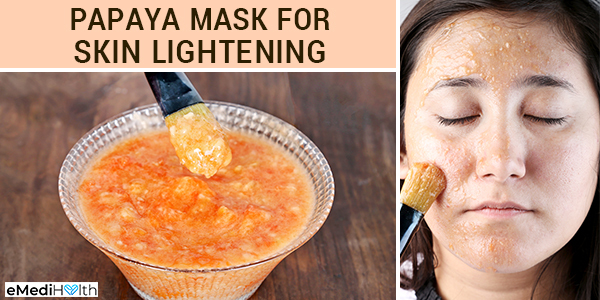
Due to its nutritive properties, papaya is widely used for skincare. It provides a healthy glow to the skin and brightens the complexion. It also acts as a natural bleaching agent.
How to use:
- Chop and mash a banana and papaya together.
- Add honey to the mashed fruits.
- Mix well and apply the paste to the skin.
- Leave it on for 15–20 minutes.
- Rinse the paste off with warm water and pat your skin dry.
Caution: Although generally harmless, papaya or banana can trigger moderate to severe allergic reactions, including an anaphylactic shock, so it is important to make sure that you are not allergic to either of them.
3. Oranges

Oranges are highly beneficial to the skin as they are rich sources of vitamin C. Oranges can help lighten the skin by acting as a lightening agent. Also, daily consumption of freshly squeezed orange juice can revitalize the skin, leaving it soft and smooth. (2)
How to use:
Apply orange juice to your skin for an even skin tone. You may also add orange juice to your diet to extract its benefits.
4. Honey
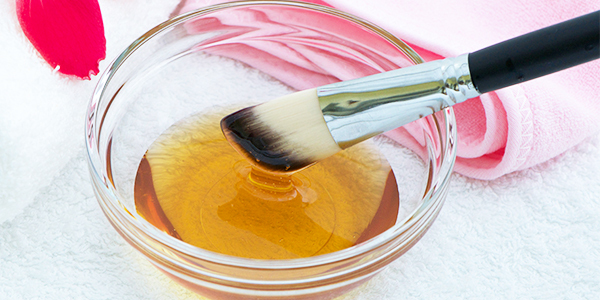
Dark spots on the skin can result from dryness. Honey can hydrate the skin to help in attaining an even skin tone. Being an antibacterial agent, honey prevents the development of acne and helps in fading existing acne scars and age spots.
Royal jelly, a honey bee secretion, can also be used to treat hyperpigmentation. One study found that water-soluble royal jelly obtained from South Korea was a potential candidate to treat skin hyperpigmentation. (3)
How to use:
Directly apply honey to the dark spots using a Q-tip.
Caution: Honey may trigger an allergic reaction in some people, especially in those with preexisting pollen or celery allergy.
5. Lemon
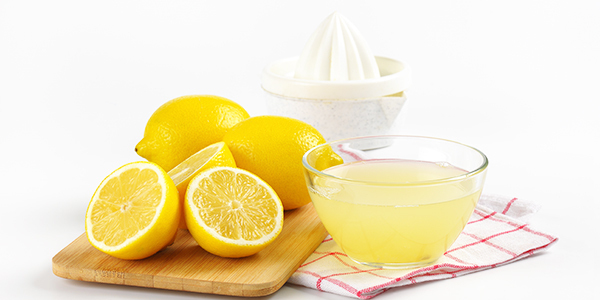
Being a citrus fruit, lemon affects the skin in a manner similar to oranges. Its high citric acid content bleaches the skin, while vitamin C promotes the proliferation of new skin cells.
Lemons are rich in antioxidants that help improve skin complexion. (4)
How to use:
- Dilute lemon juice with water and apply it to the skin.
- Leave it on for 10 minutes.
- Rinse your skin with tepid water.
Note: Always do a patch test before applying lemon juice to your skin. The acids in lemon juice can cause a stinging sensation on coming in contact with wounds. Avoid usage if open wounds are present.
6. Aloe vera gel
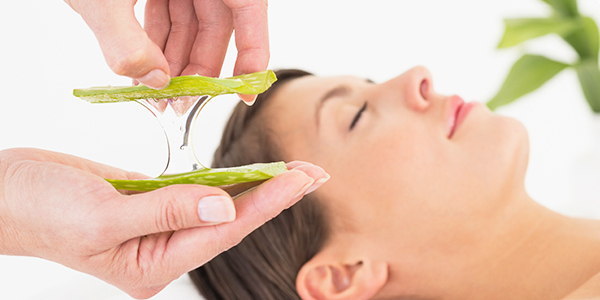
Aloe vera can be used as a skin-lightening agent due to its cooling and anti-inflammatory effects. The application of aloe vera promotes cell division and repair of damaged tissue. This can help in the treatment of hyperpigmentation.
Also, the aggregation of melanin in the melanophores leads to skin lightening. Aloin, an active ingredient in aloe vera, promotes melanin aggregation.
One study demonstrated that aloe vera could be used as a non-toxic melanocytic agent in a dose-dependent manner to treat hyperpigmentation. (5)
How to use:
- Apply aloe vera gel to your face.
- Leave it for 15–20 minutes.
- Rinse your skin with tepid water.
Caution: Do not apply aloe vera gel on wounds or infected skin.
7. Turmeric
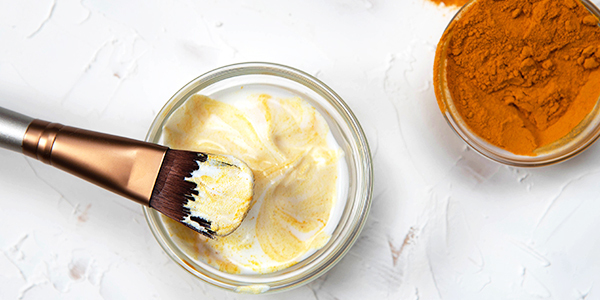
Turmeric inhibits the production of melanin and gives the skin an even complexion. It also helps in maintaining healthy skin as it has antioxidant and antiseptic properties.
Curcumin is a major compound found in turmeric. A review paper highlighted the use of turmeric or curcumin-containing products and supplements for improving skin health. The review included both orally and topically used products. (6)
How to use:
Combine turmeric powder and yogurt to make a paste. Apply the paste to your skin.
Note: Some varieties of turmeric powder can leave a yellowish stain on your skin. This will fade away after cleansing.
ALSO READ: 10 Skin Benefits of Turmeric and Ways to Use It
8. Cucumber
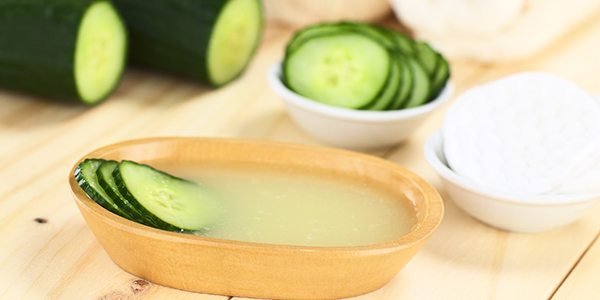
Extracts of cucumber are highly useful for skincare. Being a good source of antioxidants and vitamins A and C, cucumber extracts can help in skin hydration. They also help to alleviate irritation and inflammation. Additionally, cucumber extracts inhibit melanin synthesis and sebum secretion. (7)
Cucumber can help lighten the skin by making it firm and supple due to its collagen-binding action. It also helps in cooling the skin and it can be used on all skin types.
How to use:
Grate a cucumber and apply the juice to your skin.
9. Oatmeal
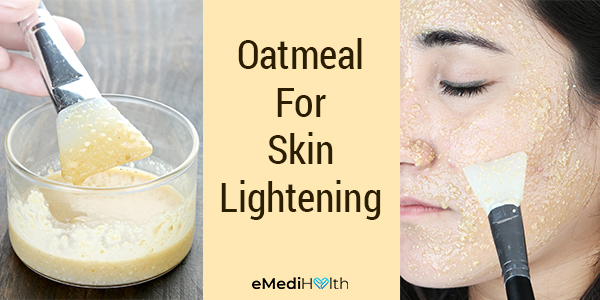
Oats (Avena sativa) have been used for the treatment of various skin problems. They are applied topically to get rid of rashes, dryness, and eczema.
Studies have been conducted to understand the mechanism by which colloidal oatmeal strengthens the skin barrier. (8) Oats contain flavonoids that can absorb UVA (320–370 nm).
The US Food and Drug Administration (FDA) regulates the use of colloidal oatmeal as a skin protectant. This information is provided in the Over-the-Counter Final Monograph for Skin Protectant Drug Products, issued in June 2003. (9)
Oatmeal promotes skin regeneration by exfoliating the skin. This helps lighten the skin and provides softness to the skin.
How to use:
- Take some cooked oatmeal.
- Once it cools down, apply it to your face as a mask.
- Wash it off after 10–15 minutes or once it dries up.
The remedies stated above can only bear results in due course of time. Also, there is no “one size fits all” remedy. It is best to visit your dermatologist to assess the exact cause of uneven skin tone and then proceed with the recommended remedies and treatment.
Preventive Self-Care Tips
You can adopt the following measures to prevent the formation of dark spots on your skin:
- Avoid sun exposure for long durations. Seek shade whenever possible.
- Use sunscreen daily. It is necessary to apply sunscreen with SPF 30 or greater and reapply every 2 hours.
- Cover your skin with protective clothing such as hats, sunglasses, and long sleeves.
- Follow a skincare routine.
- Clean your skin regularly, and avoid aggressive scrubbing.
- Avoid smoking cigarettes and consuming alcohol.
Can Diet Help in Skin Lightening?
The general health of the skin depends on the nutrition that the body receives. To achieve healthy and beautiful skin, it is important to follow a balanced diet. This can be accompanied by the use of nutrient supplements and cosmetics. (10)(11)
Does Regular Yoga Promote Healthy and Light Skin?
Yoga helps in striking a balance between your physical, emotional, and mental health.
Practicing yoga daily helps improve your skin health and gives it an inner glow. This is due to the improvement in digestion and blood circulation that yoga provides.
Yoga also helps in the removal of toxins. Additionally, several yoga poses may help in firming the skin, thus reducing the formation of wrinkles and fine lines. (12)
Final Word
Skin lightening helps you achieve an even skin tone by getting rid of dark spots or discoloration. Simple home remedies and skincare products can be used for skin lightening. If necessary, you can undergo medical procedures for skin lightening in consultation with your doctor.
Infographic: How to Naturally Lighten Your Skin
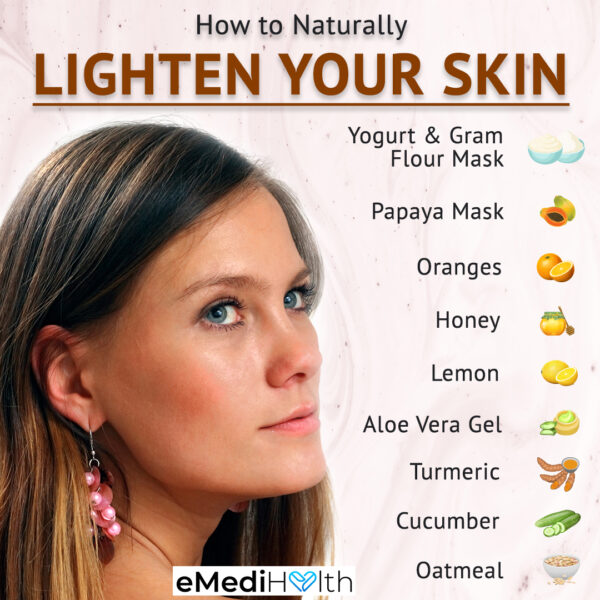
- Was this article helpful?
- YES, THANKS!NOT REALLY


